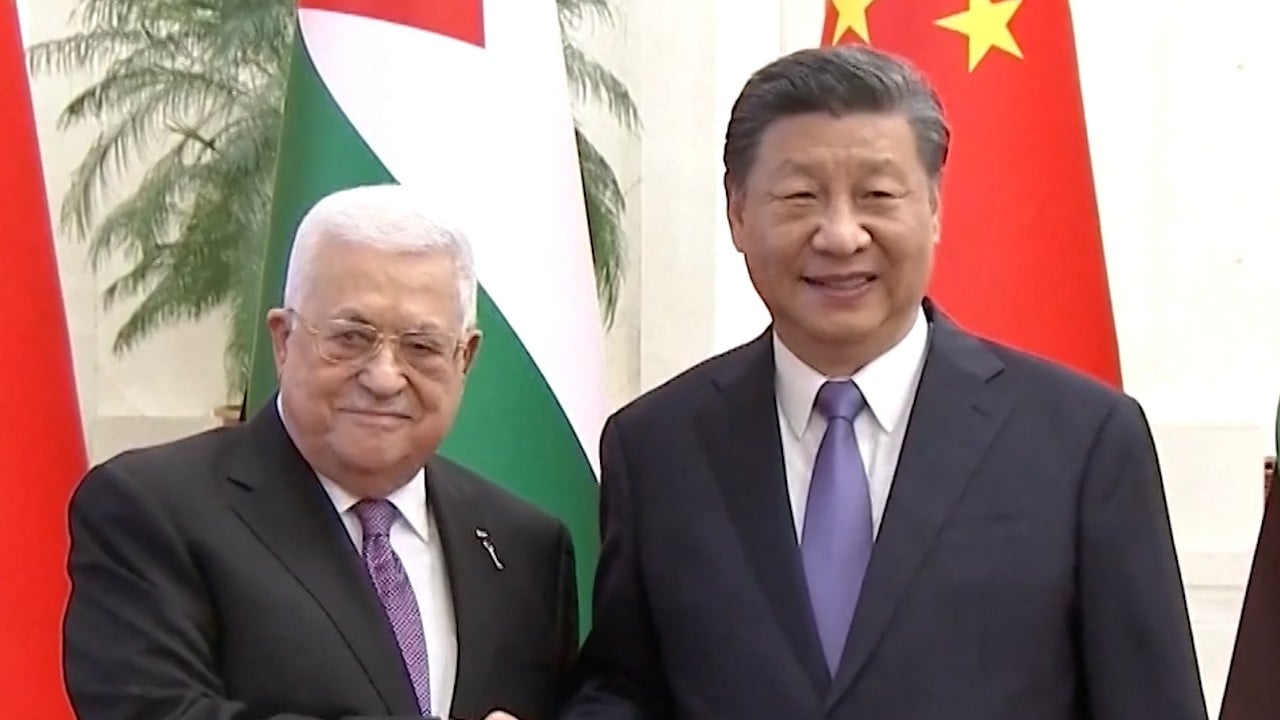
As the US loses ground to China in Middle East, Israel needs to rethink its position
- The winds are changing in the region, as China engages in peace efforts not just for Saudi Arabia and Iran, but also Israel and Palestine
- Meanwhile, the US is failing to read and adjust to the new situation, which makes Beijing’s offer of win-win economic solutions all the more appealing
Beijing has put forward a proposal for peace between Israel and Palestine, which calls for the restoration of the Palestinian state along the 1967 borders, with East Jerusalem as its capital, increased development and humanitarian assistance to Palestine, and an end to provocative language or actions.
Since the storming of Beirut in 1958, the United States has remained an influential force in the region, focused on a transactional relationship with Gulf countries. This relationship involves providing security in exchange for a steady supply of crude oil, which has been a critical strategy for maintaining a US presence in the region while preventing Arab countries from launching attacks against Israel.
That establishment of Israel’s diplomatic relations with Bahrain, the United Arab Emirates, Sudan and Morocco was underpinned by mutual opposition to Iran and a loss of interest in the Palestinian cause at government level among Arab states.
The US appears to be struggling to read the situation in the Middle East and adjust its approach accordingly. Rather, it is sticking to the same playbook and prioritising Israel’s security and interests over those of the entire region, including Palestine.
A recent example was when US Secretary of State Antony Blinken addressed the American Israel Public Affairs Committee, an influential pro-Israel lobby, and promised that Washington was still prioritising normalisation between Israel and Saudi Arabia – a day before his visit to Riyadh.
Will the dollar be dethroned by the yuan? Not in the near term
Instead, the third-highest-ranking White House official had come at Israel’s bidding. But he left with nothing – because the region has finally decided to pursue peace due to the efforts led by China.
This failure to accurately assess the new reality in the Middle East is causing the US to lose influence and relevance. Despite Washington’s best efforts to demonise China, Beijing’s attempts to foster peace make a pivot to the country seem like an increasingly appealing option.
The US has overplayed its hand too many times, leaving a trust deficit with Gulf countries that are now looking to China for conflict settlement.
Instead of remaining impartial and mediating between the two sides in the Middle East, the US has spurred bloc politics and put its own interests first. In the case of Israel and Palestine, it has had opportunities to resolve the conflict over the past 75 years, but has instead used Israel to extend its influence, such that a vicious cycle of US-backed regimes, colour revolutions and US-orchestrated invasions have stunted the growth of an oil-rich and strategically significant region.
Israel has been the biggest beneficiary under the US-led world order, gaining unprecedented influence in the Middle East despite being a regional pariah. But its privileged position is due for a re-evaluation in today’s emerging multipolar world, where China’s role as a global peacemaker affords warring states win-win economic solutions that the US has yet to meet with counter-offers.
Israel, too, understands that US influence in the Middle East is waning. Marking a change in banking philosophy, Israel’s central bank has added the Chinese yuan to the country’s US$206 billion reserves.
The way forward for Israel does not have to end in a zero-sum game unless it continues to be guided by US foreign policy. Accepting the reality of Palestine, as Saudi Arabia has of Iran, is only going to ease Israel’s security concerns. If Israel continues to follow the US’ lead, it will lose out in the new world order.
Sameed Basha is a defence and political analyst with a master’s degree in international relations from Deakin University, Australia


